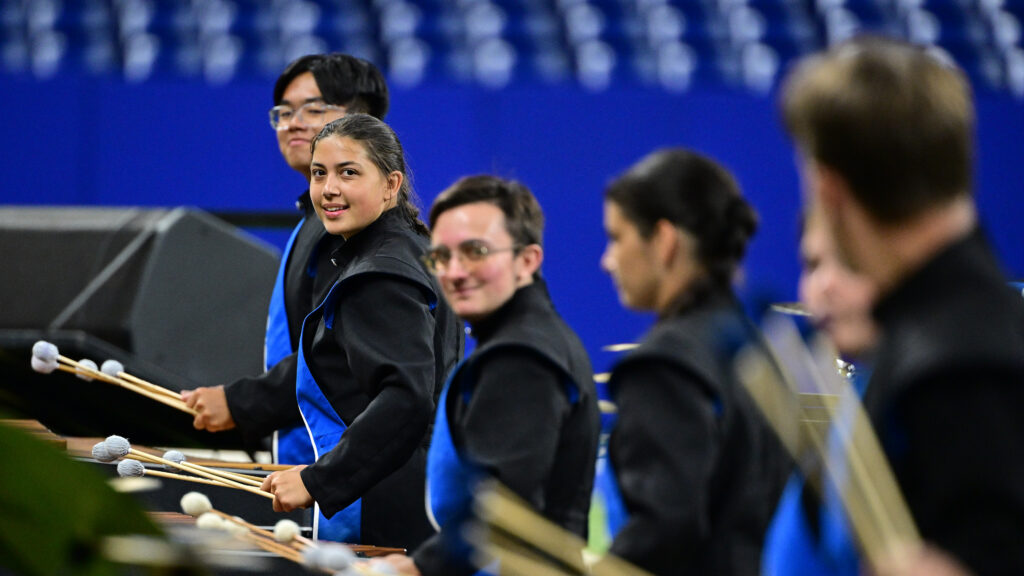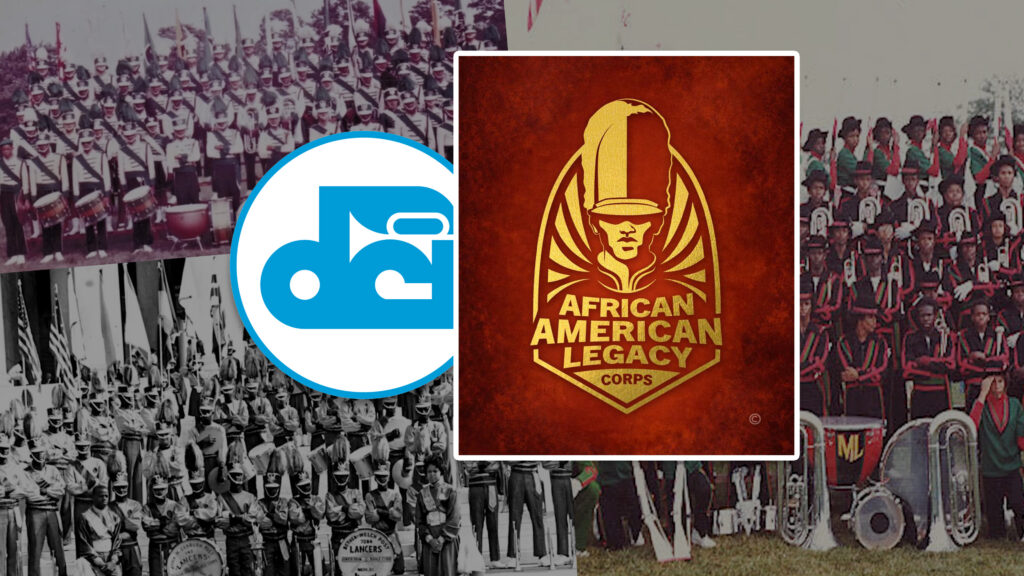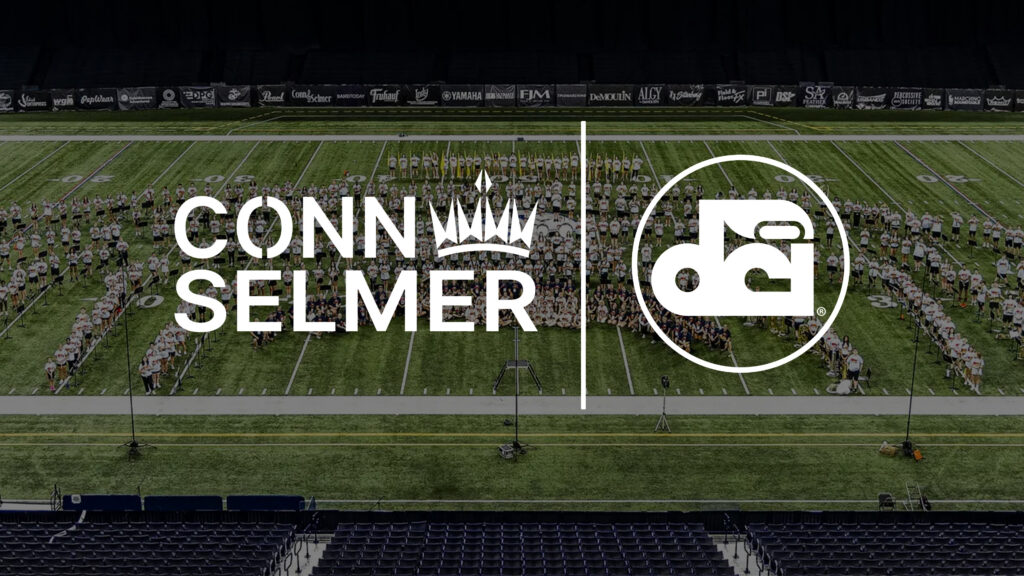Last summer, I was two weeks into tour of my rookie year with Oregon Crusaders, and for the most part I loved it. I loved it even though I was one of those hapless rookies who always seemed to be missing a shako or a shoe. Nevertheless, I was in my element, or growing into it, at least, when my hip began to hurt. The pain crept up on me so that I didn’t talk to anyone about it at first, not even my closest friends. It was important to be strong. Yet it escalated, until finally I confessed to one staff member. We didn’t have any idea what could be wrong and we tried small remedies at first, and as it still got worse, we scheduled a doctor’s appointment. The day before I was supposed to go to the doctor, we were rehearsing in Green Bay, Wis. The visual staff was looking out for me, making sure that I didn’t do anything stupid, but it got so that I could hardly make it to my water bottle and back during water breaks. No, I don’t know how I was still rehearsing, except that “mind over matter” has something to do with it. Near the end of the day, a staff instructor called the mellophone section over during a break. I had a hard time getting up from where I was sitting, and by the time I made it to where they were gathered, I was practically crying from pain. They noticed, of course—though I would have had it otherwise—and the staff member took me aside. He said that if I needed to go see a doctor, I could go then, and he would make sure no one thought that I was weak. Another staff member took me right away, but the doctors at the emergency room had no strong hypothesis for what the problem was. Confused and somewhat ashamed, I got back after lights-out and refused to talk to anyone about why I had been gone. I had trouble walking. Some people started referring to me as “Grandma,” which was a fair description of my capacity for speed and grace. I wasn’t allowed to participate in visual rehearsals. The corps director said that only if I were able to march run-throughs, would I be allowed to perform in the upcoming show. Of course, I decided to try. I made myself go out there, and I didn’t feel very brave, but something pushed me on. Pain, after the first plunge, turned out to be like water: With sufficient momentum and focus, I could glide through it. By the time we brought our horns down at the end of the opener, I couldn’t quite stop shaking, and one of the staff members came running, but I kept going. He spotted me for the rest of the show. I made it through the end, and something rushed through me as I brought my horn down. I had marched a good show, in my mind my best yet. My section leader, helping me off the field, asked me if that was the hardest thing I had ever done. I supposed it was. The next day I wasn’t allowed to march except for the run-through, and then a huge thunderstorm rolled in before we even got half started on that. We were at a park some distance from the housing site, so someone had to help me get back very quickly. I don’t remember that part. I remember arriving in the gym and curling up in my sleeping bag, confused and hurting and unable to communicate with the people around me. They were extraordinarily kind, bringing me Gatorade and food. A staff member asked me if there was anything that would make me smile, but I remember feeling incapable of having emotions. I was so numb. I had no idea anything could be so painful or humiliating as my situation, being hurt without explanation, forced to act “weak” and not participating in marching. The next day, the staff told me that I didn’t have to rehearse at all, and probably shouldn’t, but that it was my decision. Left alone in the quiet gym, I thought about it for five minutes and then started my slow way out to the field. I remember passing outside the staff’s sleeping area, and I was astounded to see our entire visual staff at the window, grinning and gesturing. I knew they would have accepted my decision either way, but somehow the run-through didn’t seem like such an impossible obstacle anymore. And then came the show. It was on this seemingly converted cow pasture, in the middle of the woods, by a mosquito-spawning pond. There was no stadium, just a low hill with lots of people on lawn chairs and an off-center building that the judges sat in. Everyone was a little incredulous, but I remember that show with pride. I don’t actually remember marching it, which is probably a good thing, but I remember that I stepped out on that field in the height of my fear and confusion and isolation. I performed my heart out. My section leader had to help me “walk” back, at an excruciatingly slow pace. Any concept of dignity was long gone: We sang “Row, Row, Row Your Boat” to help me take each step. We went to another doctor, in Eau Claire, and these doctors were incredibly efficient and helpful. Still, they went through many hypotheses and two appointments before they decided that I had a stress fracture in my pelvis and probably a torn muscle in my groin. By the time they came to that conclusion, I had been forced to stay overnight at the hospital for bone scans while my corps went on to another state without me. Sitting in the hospital bed, staring alternately at the sunset out the window or at the clock, I could only picture the corps performing without me, pulling out of the parking lot without me, leaving without me. At that point, one of the doctors was pushing hard to send me home, and I thought that I wouldn’t even get to say goodbye to my corps, which in many ways at that point of tour, was my world and my family. Let me tell you, there is nothing like tour to make a hospital’s amenities seem extraordinarily luxurious. An entire menu of food, a cushy bed, and a hot shower with a seat boggled my mind. I also realized how dirty all of my belongings were, but mostly I just wanted to get back to the environment in which I wouldn’t notice. The nurse wanted to know why I was in the hospital in Wisconsin when my home was thousands of miles away, and when I told him, he brought in what seemed like the entire nursing staff to hear me tell my story again, in entirety. They all plotted to get my out of the hospital and reunited with my corps as fast as possible. A staff member had stayed with me, and through yet more stubbornness, I convinced a doctor that I could continue on with the corps, although whether to march or not was still unclear. We rented a car and drove all day to catch back up with the corps, finally rendezvousing in a parking lot late at night. Someone, probably our drum major, carried me up the steps of the bus. I heard people shouting to clear the way. That dark aisle, with people sleeping and smiling and welcoming, people proud and exhausted—it felt like going home. After an ordeal of discussions with my family over the phone, I received permission to continue marching, on the condition that I remain on the crutches I had been issued at all other times (while I couldn’t get around much without them, I was rather unreasonable about things like crutches and wheelchairs), and that I only participated the must crucial visual rehearsals. From then on, every minute of tour was a gift. I couldn’t carry much with my crutches, nor was I terribly adept at getting around, especially since I still had a torn ligament in the knee of my “good” leg. I was quite dependent on the kindness of others for things like getting my water bottle and backpack and instrument to the field, my things unloaded from the bus and into the housing site, getting onto the bus (I had to be carried), even carrying my things to the shower and changing out of uniform. The experience was frustrating and humiliating, yet I was awed by the graciousness of my corpsmates and the staff. I am completely indebted to their patience and helpfulness. There wasn’t a practical reason to keep me. They could have found a replacement, I was a burden to the people around me in many situations, and there wasn’t much opportunity for me to improve at the same rate as everyone else. Yet, they allowed me the chance to persevere and test my own limits. And I did. I made it all the way through the DCI World Championships and finished the season, without missing any more shows. On occasion, I had to be carried when we ran it back during rehearsal, but I always rehearsed when I was asked to. You know, I think the slowest part of my life was last summer. I don’t mean in a negative way, I mean that I knew I was there on borrowed time, thanks to others’ goodwill alone. When given a gift like that, the only thing to do is savor it, and let every last moment of sweat, dirt and communal showers ring in memory as something precious. The whole corps was incredibly supportive. Even the bus drivers wanted to talk to me about what I was doing and they cheered me on as well. At the end of tour, vets that seemed nearly super-human when I first started told me that they were proud of me, that they respected me. I couldn’t have asked for more. Some people might wonder why I wanted to put myself through all that, besides that I am a stubborn, irrational person. The reason is that I started tour loving all of it—the independence and the hard work, bettering myself, being in new situations. And when some of that was taken away from me, I learned to cherish what I still had. I still got to perform. For 15 short minutes—less, really—I somehow was able to glide, to move gracefully over the top of the pain and humiliation and fear, to briefly trade in being a rock star for being a gimp. It is the most wonderful thing in the world to fight it through, jazz running tall on smooth turf, and to do it alongside more than a hundred peers who held me up and would even carry me if need be. It was an honor. When I arrived home, the doctors found that the stress fracture had turned into breaks in two bones in my pelvis. Fortunately, I have been healing well. I had knee surgery and now I am on the mend for a (hopefully) uneventful …
Michael Boo has been involved with drum and bugle corps since 1975, when he marched his first of three seasons with the Cavaliers.
He has a bachelor’s degree in music education and a master’s degree in music theory and composition.
He has written about the drum corps activity for over a quarter century for publications such as Drum Corps World, and presently is involved in a variety of projects for Drum Corps International, including souvenir program books, CD liner notes, DCI Update and Web articles, and other endeavors. Michael currently writes music for a variety of idioms, is a church handbell and vocal choir director, an assistant director of a community band, and a licensed Realtor in the state of Indiana. His other writing projects are for numerous publications, and he has published an honors-winning book on the history of figure skating. His hobbies include TaeKwonDo and hiking the Indiana Dunes. But more than anything, Michael is proud to love drum corps and to be a part of the activity in some small way, chronicling various facets of each season for the enjoyment of others.





